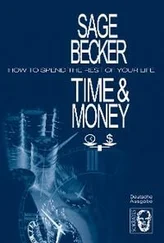1 ...8 9 10 12 13 14 ...17 Of course the coaches didn’t know anything about this. It came out during the session that he was on the wrong side in his chosen profession, the media. He was a complete actor, who belonged in front of rather than behind the camera: a limelight hogger! No sooner had he discovered this for himself when he found an honest and deep relationship. Now he is working on a personal project which he will stage one day; and he works willingly and hard on it, so he can get his well-earned applause.
Character, persona, personality
Y
our talent determines your personal success. The personality determines the goal. The personality often changes when you undergo a deep crisis – as the example above shows.
During a crisis you encounter your self-deception and discover what you believe to be right in the innermost part of your unconsciousness. Many people have a dichotomy inside themselves that they carry for all of their life, and are too occupied to notice it. There is the type who always questions others, criticizing and commenting on their actions – without ever giving himself away. That is to say he knows like no other of the danger and must have had bitter experiences with it. Now he is paying the others back by pumping them for information and questioning the reasons for their doings and not doings - without noticing it himself. He has a special talent for looking for mistakes and rubbing more salt into the wounds. The interlocutors in his life are constantly forced to give an account of themselves, and it seems that they are living their lives the wrong and he the right way. Many avoid him – not least because he never opens up to them, and doesn’t do himself what he demands from his fellow human beings.
A client of ours told us about one of his own clients, who cultivated a very serious and correct business jargon, only to fall into the wildest linguistic excesses outside working hours: he couldn’t be foul-mouthed enough. When after a drunken, backslapping, all mates together evening he introduced this vocabulary into an email his client was stunned by his sleaziness and found his personal style vulgar and obsequious. And that was the last he heard from him.
This is the pathological side of values. Such people have genuinely not found their inner self. They combine contradictions without noticing it. The inner divisions in human beings first have to be discovered both in order to analyze them and eliminate them (the job of the psychoanalyst), or to push them open without realizing it and to make them as fruitful as possible (the job of the coach). Normally one always assumes that one is right and everyone else wrong. This is a very costly argument. There is a saying in America that “you can be right or you can be rich”.
Personality values are mostly especially intractable because our pig-headedness prefers us to appear as we would wish to be. You are convinced that you are a nice person and put great trust in your own press. Unconsciously you expect that other people will like you and treat you well because of it. But you don’t know what other people think and say about you. Very few people take the trouble to find out and prefer to fall in love with their reflection. It would be unpleasant if a “personality” who acts like Louis XIV, but in reality is totally unpopular had to lead his team out of a crisis. Only then do the true values that are hiding behind the mask of the ego appear.
“Public virtue, private vice” is what the 18th century doctor and philosopher Bernhard Mandeville called the phenomenon whereby even the greatest criminals want to appear as good men in society. These ego values glitter on the surface and hide the inner being of a person. They are based on vanity, on false pride or false self-estimation. Of course it’s fun to dress up and go out and turn men’s heads, or to tell stories where we come across quite by chance as high principled heroes. But other ego values are simply vitriolic. Basically the ego always strives to bring together people who think like us, gets them to follow us and at the same time excludes people who don’t think as we do. This way of thinking can lead to the end of a career.
The ancient Greeks called the masks that they used in tragedy “persona”. They represent a character that can’t be found in the original face. Many cultures have believed in such masks. There are the Melanesian peoples for whom there is no death, as their dead live on in demons: small carved figures who lie in the demon house. They don’t just represent the ancestors, they are the ancestors.
In our culture it only depends on whether we see through the masquerade or not. We all bring forward superficial values in society and project ourselves, as we would like to be: great guys, good human beings, the social mask, our image. Many people use the laws of marketing and develop another character to become someone by ham acting an artificial figure that is constantly onstage. If the “persona” is the mask that we show in society, the ego is the make-up. We paint nice colors on our faces to appear more interesting and more important and to hide our true face. It is a childish way of drawing attention to yourself. To develop into a person you only need to wipe the character cosmetics off your cheeks and just lower your guard to see yourself as others see you. The mirror that shows you how you really are is society.
You need courage to find and develop your own values. For often other values determine our lives. Possibly we have pursued a course of studies which our parents are proud of, not us. Perhaps we have shone in a subject so that we were forced into it rather than choosing it ourselves. At the moment when you come out with your real values and goals – often after a tragedy – people around you will be shocked. But when the puzzle stage is over your dream begins. You have established the first roots of the performance scale tree. Now strictly speaking it can only lead upwards.
Partners worth their weight in gold
W
hen you build up a network of people, you look around for people who have the same values as yourself – which is not to be confused with a peer group which takes everything you say as gospel and excludes everything else. Sharing the same values means having the same desires and perceptions.
This is how you can recognize the compatibility between people. If their values, desires and perceptions don’t correspond to those of their potential partners, they will not be suited fundamentally. Sympathy has more power than you think. As a rule cooperation doesn’t last long if you are not on the same wavelength.
To find the right people you have to communicate your real values – the values of your personality! Explain what is important to you without pretending. Let everyone know where you stand or you risk deeply disappointing others. Surrounded by the wrong people, people who have other values than you, you can’t build a successful career or live a satisfying life.
A good way of finding out what kind of person a business partner or a new member of the team is is through the proverbial bottom line: money. The way people handle money shows a great deal about their character. Business conduct, payment practice and generosity are indicators of the culture of the firm, and you will either have a bad time with customers and colleagues or will surf with them on the same wave, as the case may be.
As soon as a new player joins the team his character is crucial for the setup. Someone comes along who is supposed to take over the sales department and is at the same of the opinion that you have to drive up in front of customers in a BMW Model 7 to make an impression – long before you have earned enough money for such a car. He has to have the smart suit because it’s essential for winning over customers. In a restaurant he goes to the toilet just before the bill arrives and only resurfaces when it has been paid. Others keep money back until it no longer works, to the chagrin of their suppliers.
Читать дальше












